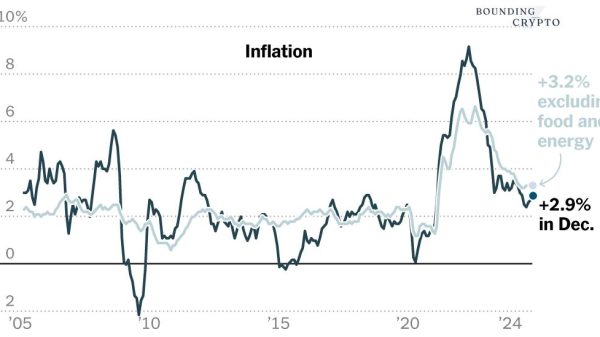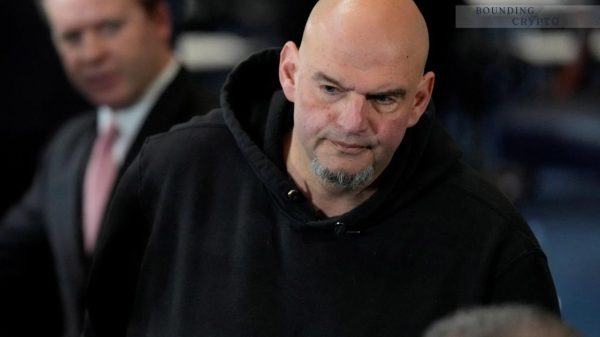Corrections Officer Accused of Smuggling Scandal Sparks Broader Concerns within Florida DOC.

Florida Department Of Corrections PrisonPhoto byFlorida Department Of Corrections Website
In a revelation that has sent shockwaves through the Florida Department of Corrections (DOC), a corrections guard at the Okeechobee Correctional facility faces accusations of accepting bribes to smuggle contraband into the prison. The alleged misdeeds of 28-year-old Enly Cyril from Fort Pierce have not only exposed potential corruption within the state’s correctional institutions but have also ignited a broader discussion about the challenges and issues plaguing the Florida DOC.
The shocking allegations against the Corrections Officer came to light on a recent Monday, stunning both officials and the public with the audacity of the charges. The Corrections Officer, who served as a corrections guard at the Okeechobee Correctional facility, is now at the epicenter of a corruption scandal that threatens to cast a dark shadow over the reputation of the entire Florida DOC.
The accusations against the Corrections Officer revolve around his purported involvement in smuggling alcohol into the prison. Officials claim that they accepted a bribe from an inmate to enable the smuggling operation. The contraband in question consisted of two bottles of tequila, clandestinely introduced into the prison on December 22nd of the previous year. Adding a layer of complexity to the case, the Corrections Officer reportedly used his sister’s Cash App to receive the illicit funds.
Compounding the case against the Corrections Officer, cell phone evidence has come to light, shedding light on a series of potentially incriminating transactions. Among these transactions, a $500 exchange for a Wi-Fi box, $1,200 for one bottle of contraband, and a staggering $1,450 for another bottle of the prohibited substance have raised eyebrows. These revelations were detailed in the official arrest report, painting a concerning picture of an intricate web of illegal activities.
The Corrections Officer now faces a litany of charges, each with the potential for severe legal consequences. The charges levied against him include:
Unlawful Compensation or Reward for Official Behavior: Cyril stands accused of accepting a bribe from an inmate, leading to the charge of unlawfully benefiting from his position as a corrections guard.
Introduction of Contraband into a State Correctional Facility: The allegations suggest that Cyril facilitated the introduction of prohibited items into the Okeechobee Correctional facility, a grave offense that jeopardizes the security of the prison and the safety of inmates and staff.
Unlawful Use of a Two-Way Communications Device: The inclusion of cell phone evidence complicates the case further, as Cyril faces charges related to the improper use of a two-way communications device, deepening the allegations against him.
The charges against the Corrections Officer signal a serious breach of trust, given that corrections guards are entrusted with maintaining the safety and security of the facilities they serve. This incident casts doubt on the effectiveness of security protocols in place to prevent such breaches within the correctional system.
The allegations against the Corrections Officer are not isolated incidents within the Florida Department of Corrections. An article published on April 28, 2022, has unveiled a disconcerting trend of arrests involving DOC employees and contractors, which highlights a deeper issue extending beyond this single case.
Over slightly more than a year, at least 35 individuals associated with the Florida DOC have faced arrests, prompting concerns about the effectiveness of internal oversight and safeguards in place to prevent corruption and misconduct within the state’s correctional institutions.
The article from April 2022 offers a grim snapshot of the situation during that period. Among the arrested individuals, 18 faced charges related to introducing contraband, underscoring a troubling vulnerability within the DOC. The introduction of prohibited items into prisons poses a significant risk to the safety and security of inmates, staff, and the general public.
Furthermore, 10 individuals were charged with assaulting prisoners, emphasizing concerns about violence within correctional facilities. These allegations underscore the need for improved monitoring and training to ensure the safety and well-being of inmates.
Additionally, six individuals faced charges related to having illicit relationships with prisoners under their supervision. This raises questions about the adequacy of protocols in place to prevent such misconduct, as such relationships can compromise security and, in some instances, endanger the lives of those involved.
In a somber note, one individual was charged with vehicular homicide, a grave and tragic incident that adds to the disheartening list of arrests within the Florida DOC.
The alarming number of arrests within the Florida Department of Corrections over the past year calls for a profound examination of the root causes and a comprehensive reform effort. Addressing these issues is essential to restore public trust and ensure the safety and security of the correctional system.
Improved Oversight: Enhanced oversight and accountability mechanisms are urgently needed within the DOC to prevent corruption, misconduct, and the introduction of contraband. This includes more frequent and thorough internal audits, surveillance, and inspections.
Stringent Hiring and Training: Scrutinizing and enhancing the recruitment and training processes for corrections personnel is imperative. Ensuring that individuals entrusted with overseeing inmates meet the highest moral and ethical standards is paramount.
Whistleblower Protection: Encouraging and protecting whistleblowers within the DOC is vital to uncover and address misconduct. Offering mechanisms for staff to report suspicious activities without fear of retaliation is a key aspect of reform.
Community Involvement: Engaging the community in discussions about the Florida correctional system can provide insights and suggestions for reform. Public input and transparency can help rebuild trust in the system.
Legislative Changes: Reviewing and amending existing laws and regulations to impose stricter penalties for corruption and misconduct within correctional facilities is a crucial step in deterring such behavior.
Mental Health and Rehabilitation Programs: Investing in rehabilitation and mental health programs for both inmates and staff can contribute to a safer and more productive correctional environment.








































